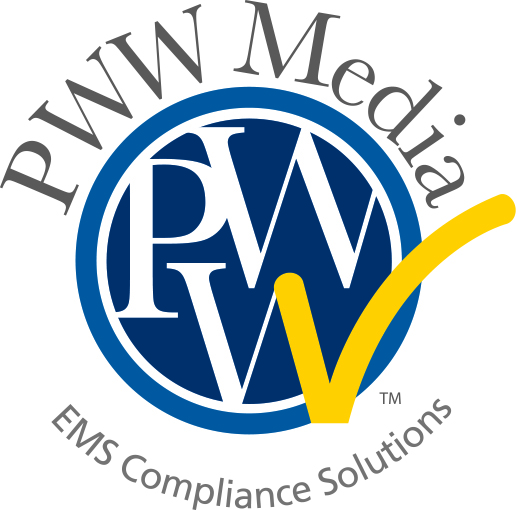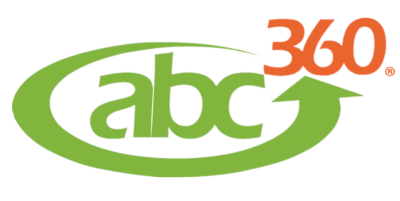What is PWW XI?
The PWW Executive Institute (“XI”) is a high-level and intensive all-day workshop for EMS leaders, chiefs, HR managers and compliance professionals. XI helps leaders spot industry trends from a high level, and gives you the tools you need to shape your agency’s own future instead of waiting for external forces to shape it for you.
Spring 2015 Dates:
Las Vegas, NV St. Louis, MO Clearwater Beach, FL
March 24 April 20 June 9
Session Topics & Descriptions:
General Session: State of the Industry: Challenges, Threats and Opportunity
The mobile healthcare industry is moving rapidly and even though you might be on the right track, you can’t afford to sit still or you’ll get run over by the train! PWW attorneys and consultants have the unique experience of seeing these changes both from an “above the clouds” vantage point as well as where the “rubber meets the road” as we counsel hundreds of clients in all 50 states and U.S. territories on how to thrive in this ever-changing, highly regulated world you live in. Steve Wirth and Doug Wolfberg bring the collective experience of the entire PWW team to you in a fast-paced and thought-provoking capsule version of the challenges, threats and opportunities that await you – combined with “XI Action Points” you can take home to improve your agency’s future posture.
General Session: “Unaccountable” – And Time to Change That!
Whether you have 10, 100, or 1,000 staff members, your agency liability comes down to the actions of just a few people – usually that two-person ambulance crew on that one call where things go terribly wrong. And there is typically no one there to supervise their actions. The bottom line is that our health care system – including EMS – is largely “unaccountable” to anyone. But the new culture of healthcare demands transparency. Our future success requires a high level of personal accountability at all levels of the organization. Transparency and accountability are part of the new “collaborative” healthcare model and must be driven from the top down. This engaging session will help you shift your EMS agency to this new “culture of accountability” that can improve efficiency, increase patient satisfaction, and reduce risk.
Morning Breakout Sessions – Choose Mobile Integrated Healthcare (MIH), Compliance or HIPAA
- Compliance Breakout: How to Effectively Implement and Manage a Compliance Committee
- The “compliance committee,” highly recommended by the OIG, is a very effective tool in your EMS agency’s compliance toolbox. This session will discuss how to establish one, who should be on it, the committee’s role, and how committee members should communicate both within and outside the committee. Special “role play” scenarios will be used to show you how the compliance committee should handle several of the most common compliance concerns that could be brought by one of your staff members or others.
- HIPAA Breakout: Portable Devices - The Biggest Compliance Threat
- EMS is at the forefront of technology when it comes to the use of portable electronic devices (PEDs) to create and transmit sensitive data – including patient information. But huge penalties await the EMS agency that fails to adequately secure its PEDs or that lacks uniform policies on how to properly use them. The HIPAA police are on patrol, and you can’t afford a “breach” of protected health information from the loss, theft, or misuse of these devices – which is the number one HIPAA risk area for EMS agencies. An often unaddressed threat is the personal PED that your staff member brings to the workplace. This session offers practical solutions to deal with the top PED issues you will face. As a special bonus, we’ll provide you with a model BYOD (Bring Your Own Device) Policy that you can implement to help reduce your risk.
- MIH Breakout: Finding Your Niche and Funding Your MIH Program
- You’ve heard about Community Paramedicine (CP) and Mobile Integrated Healthcare (MIH) – but may not be exactly sure how your organization fits into the picture. This session will explore the various MIH service delivery models and illuminate the opportunities for all types of EMS agencies – whether public, private or non-profit – to find a practical and workable niche in your community’s healthcare system. And, just as importantly, we’ll address revenue models to support an MIH program, including hospital, health plan, physician and ACO partnerships, fee-for-service models, grant options and more. Of course, we’ll also give you valuable information to help you navigate the legal and compliance issues that can arise in MIH programs.
Afternoon Breakout Sessions – Choose Mobile Integrated Healthcare (MIH), Compliance or HIPAA
- Compliance Breakout: Auditing vs. Monitoring: Keeping Tabs on Compliance With a Multi-Pronged Strategy
- You know auditing and monitoring are both essential elements of your compliance program, but what exactly are they and what is the difference? This session will answer those questions and more. We will walk you through the steps of an internal audit including what to audit, how to audit and how to evaluate the results. We’ll also give you practical advice on how to monitor compliance activities using dashboards, control points, and other “online” techniques. Successful auditing and monitoring can help you discover potential problems before the government does and can combat allegations in the event of an investigation. This session is packed with concrete action steps that you can use to improve your agency’s compliance program.
- HIPAA Breakout: The New HIPAA Audit Protocol - Your Ducks Aren’t in a Row Until OCR Says They Are
- HIPAA enforcement is ratcheting up, and the penalties for non-compliance with HIPAA are severe. The Office of Civil Rights (OCR) is gearing up for a new wave of audits and has issued a new protocol for its investigators to follow. This protocol provides a virtual “roadmap” to HIPAA compliance. This session will review the protocol and provide practical steps for your privacy and security compliance program so that you have all your ducks in a row if the “HIPAA police” come knocking on your door.
- MIH Breakout: HR for MIH: Getting and Keeping the Right People as Community Paramedics
- A critical aspect to the success of your MIH program is to recruit, train, and keep the “right” people to provide these new patient services. This may include changing the “mind set” of your current EMS staff in a direction they may not initially be comfortable with. Community Paramedicine requires a unique skill set as EMS staff make “house calls” in the non-emergent setting as a lone provider. To succeed in MIH, caregivers will need finely tuned skills in patient assessment and interpersonal communications with an emphasis on individual accountability and a revised approach to patient care documentation. And there are labor and employment law issues to consider, such as collective bargaining and wage and hour laws. This session will provide a road map for dealing with these key elements and other important “people issues” in implementing your MIH program.
General Session: Background and Sanction Checks: Look Before You Leap!
We’ve said it many times – hire slowly and carefully – but that’s not the end of it! Not only must you be thorough and deliberate in the hiring process to ensure you get the
right people in your organization; you must also regularly check to make sure they haven’t become a liability without your knowing it. We will discuss specific case studies we’ve dealt with this past year where the hiring process went bad simply because the EMS agency did not properly screen new applicants, or keep proper tabs on the people that are already there. As a bonus, you’ll walk away with PWW’s new “Model Employment Application” that is geared to minimize your legal risk from claims of unlawful discrimination in hiring, negligent hiring or negligent retention.



